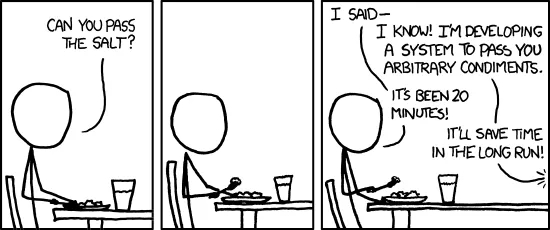Premature optimization and the importance of algorithms

Static polymorphism is fast, but complex
I once had a colleague who was a C++ genius. For him, every function had to be templated. However, in my experience, the excessive template boilerplate made the code harder to read.
While templates offer a great way to make code modular and enable static polymorphism for potential performance gains, they also add complexity and reduce readability. Striking a balance is key.
The importance of Algorithms
At the lower level, less experienced developers often implemented slow algorithms. This felt more like premature optimization, with senior developers focusing on obscure details instead of improving the overall system.
Proponents of this approach often argue, “We need flexibility and performance.” Unfortunately, if your senior devs insist on this direction, there’s little that can be done without triggering lengthy debates and widespread frustration.
A quick search revealed the following:
In performance-critical applications, optimizing data structures and algorithms yields far greater benefits than micro-optimizations like avoiding virtual function calls.
- Right Data Structures: Use hash tables, binary trees, heaps depending to minimize access time and memory overhead.
- Algorithm Efficiency: Reducing O(n^2) to O(nlogn) saves millions of operations, far outweighing nanoseconds gained from avoiding virtual calls.
- Profile First: Use profiling tools to identify real bottlenecks; focus on hotspots that impact runtime significantly.
- When to Optimize Virtual Calls: Only for tight loops, where every cycle matters.
A “tight loop” refers to:
- A loop that runs a large number of iterations (e.g., millions to billions).
- Contains minimal work per iteration (e.g., function calls, basic arithmetic).
- Becomes a performance bottleneck due to repetitive operations.